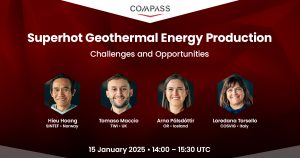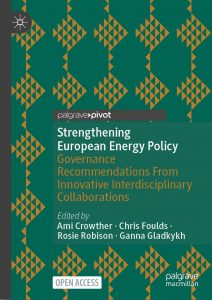Frontier Geothermal Innovation
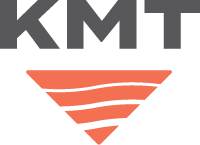
Krafla Magma Testbed (KMT): Advancing a Pioneering Geothermal Vision
In 2024, the Krafla Magma Testbed (KMT) marked a significant step forward as it transitioned into an independent non-profit entity, laying the foundation for its long-term scientific and operational framework. With GEORG continuing to coordinate communications and strategic support, KMT gained momentum as a globally significant initiative in superhot geothermal and deep Earth science.
The highlight of the year was the KMT Symposium, held on April 10–12 in Munich, Germany. Under the theme “Together, toward a greener and safer future,” the event brought together over 100 participants from academia, government, and industry. Researchers, engineers, and policymakers exchanged insights on the future of deep-drilling systems, volcano monitoring, and magma-related energy solutions. A key feature of the Symposium was the presentation of 60 scientific abstracts directly related to the Krafla volcanic system, underscoring the research community’s growing engagement.
The Symposium also included a closed high-level funding meeting with government representatives from Iceland, Italy, the UK, and other countries, signalling strong international interest in supporting KMT’s long-term vision. These efforts are helping position KMT not only as a scientific landmark but also as a strategic infrastructure project aligned with climate resilience and clean energy innovation.
Read more: https://kmt.is/the-krafla-magma-testbed-symposium/
KMT and GEORG at IGC 2024: Showcasing Innovation and Collaboration
The Iceland Geothermal Congress 2024, held in Reykjavík from 28–30 May, provided a timely platform for reconnecting the international geothermal community. Ahead of the main event, GEORG co-organized the Superhot Geothermal Workshop with the Clean Air Task Force, under the theme “Bridging the Gaps: Advancing Superhot Rock Energy”. The workshop convened leading experts to discuss how to overcome technical, regulatory, and financial hurdles in advancing high-enthalpy geothermal energy and accelerating progress in this frontier field.
During the Congress, KMT was hosted at the Landsvirkjun booth, engaging with stakeholders from around the world. The booth served as a hub for discussions on the Krafla Magma Testbed’s vision and progress, drawing strong interest from researchers, developers, and policy leaders. The Congress also highlighted achievements within GEORG-led initiatives, including the COMPASS Project, which was recognized with an Innovation Award for its patented flexible coupling technology developed by ÍSOR.
These engagements underscored GEORG’s active role in pushing the geothermal sector forward—technically, strategically, and through meaningful partnerships.
Panel Participation at EAGE GET 2024 – Communications and Social Acceptance in Superhot Geothermal Development
In June 2024, Dr. Amel Barich (GEORG) represented the COMPASS project in two panel sessions at the European Association of Geoscientists and Engineers (EAGE) Global Energy Transition Conference (GET 2024). The first, “Appropriation of the Subsurface and Its Usage,” focused on the social license to operate for geothermal energy, highlighting findings from the COMPASS Deliverable D7.4 on communication strategies and social acceptance for superhot geothermal developments. Dr. Barich shared insights from both the COMPASS and previous CROWDTHERMAL projects, with an emphasis on stakeholder engagement models, localized risk communication, and the role of trust in advancing deep geothermal initiatives.
In a second session, “New Horizons: Radical Innovations in Geothermal Energy,” she presented the Krafla Magma Testbed (KMT) alongside other forward-looking initiatives, underscoring synergies between the goals of KMT and COMPASS in pushing technological boundaries for deep and superhot geothermal drilling. Both interventions served to amplify COMPASS’ work on sustainability, social dynamics, and innovation within high-enthalpy geothermal.
LinkedIn summary of the sessions: Read here

COMPASS General Assembly – Sheffield, UK (2024)
In April 2024, GEORG participated in and co-organized the third General Assembly of the COMPASS project, hosted by partner TWI in Sheffield, UK. The event served as a key project milestone, marking the halfway point of the project and showcasing technical progress on corrosion mitigation, laser cladding technologies, and flexible coupling systems. The assembly included technical sessions, lab visits, and a field trip to a steel processing plant. GEORG played a coordination and communication role and shared updates on stakeholder engagement and sustainability strategies. (Read more)
COMPASS Project Meeting – Lyon, France (2024)
GEORG joined project partners for a technical meeting in Lyon in autumn 2024, hosted by CURISTEC. The meeting focused on advancements in cement design, material testing, and mitigation strategies for thermal stress in superhot geothermal wells. GEORG contributed by facilitating the circular design workshop on future geothermal well systems and convened a session with the Advisory Board to gather strategic input on exploitation and long-term deployment pathways.
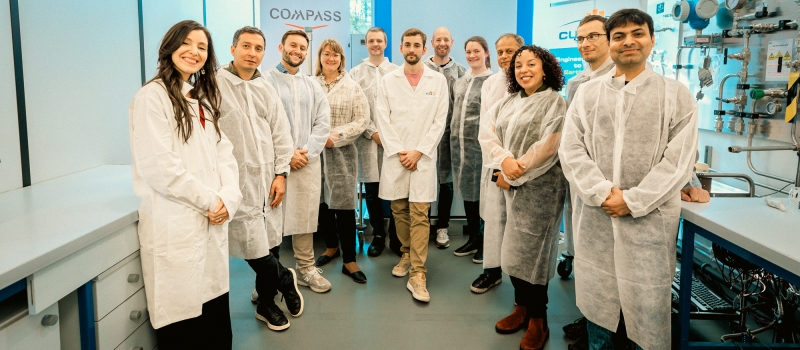
COMPASS Webinar #1 – “Superhot Geothermal Energy Production: Challenges and Opportunities”
As part of its communications and dissemination role, GEORG organized and moderated the first COMPASS webinar on 15 January 2025. The event, titled “Superhot Geothermal Energy Production – Challenges and Opportunities,” featured experts from the COMPASS consortium (SINTEF, ISOR, TWI, TVS, and Orkuveitan) and covered key topics such as thermal stress mitigation, corrosion protection, and stakeholder engagement in superhot geothermal projects. The webinar attracted a diverse international audience from academia, industry, and public institutions and was an important milestone in increasing the project’s public outreach and knowledge sharing.
📎 Webinar Announcement & Programme
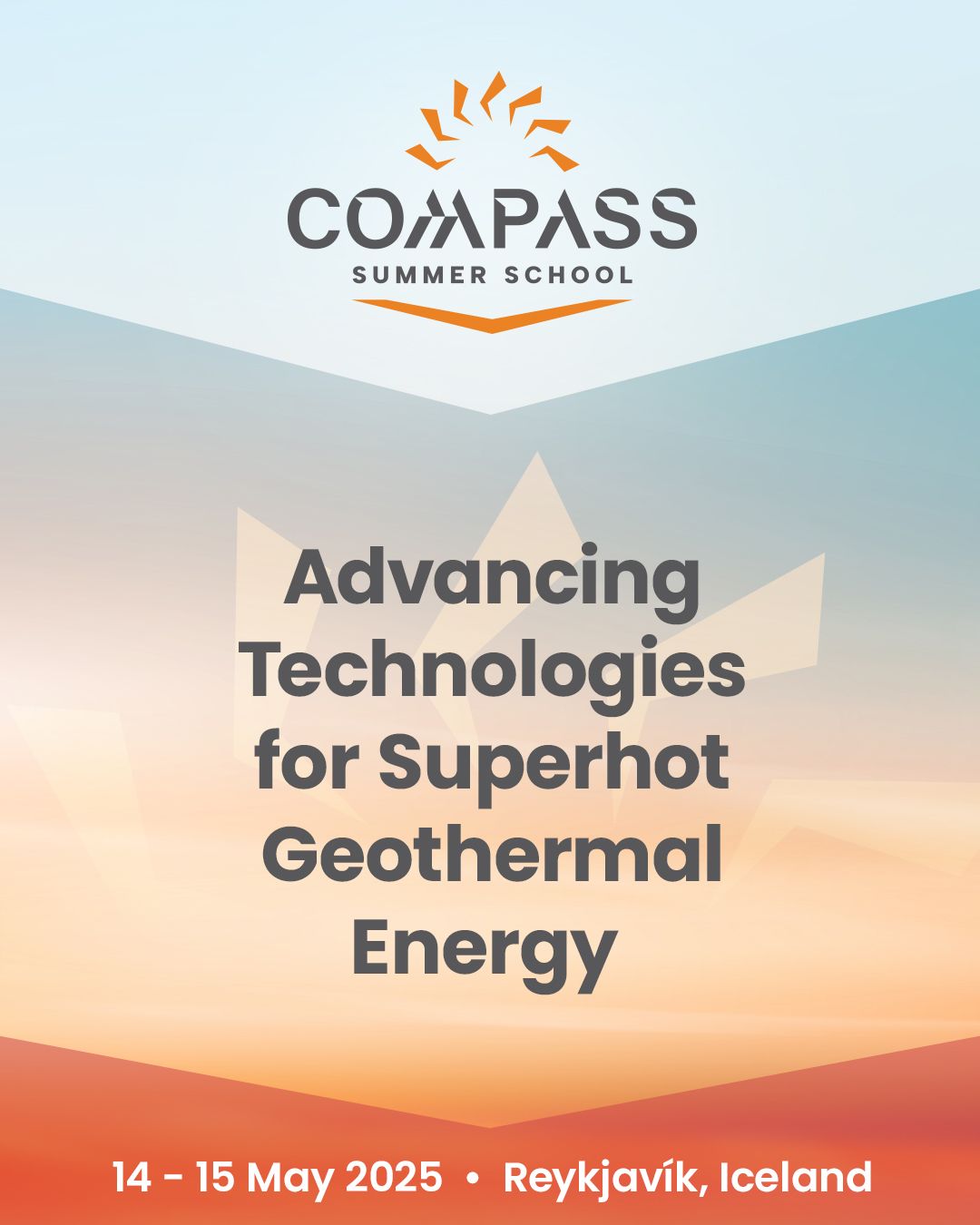
COMPASS Iceland Week
GEORG coordinates the COMPASS Iceland Week, a cornerstone event in the final year of the COMPASS project. Taking place from 13 to 16 May 2025, this multi-day series includes the project’s General Assembly, the COMPASS Summer School 2025, and a Regional Stakeholder Engagement Workshop. The Summer School (14–15 May) focuses on “Advancing Technologies for Superhot Geothermal Energy” and brings together 35 early-career researchers and professionals for lectures, a poster session, and a field trip to geothermal sites such as Svartsengi and Seltún. The final day features the Iceland Regional Workshop (16 May), gathering stakeholders from Orkuveitan, Landsvirkjun, HS Orka, ÍSOR, COWI, and others to discuss challenges and priorities in high-enthalpy and superhot geothermal development. GEORG led the planning, logistics, moderation, and communications across all three events, strengthening the project’s outreach and stakeholder alignment.

GEORG joins the EPOS-ON Project
GEORG in EPOS-ON
In 2024, GEORG joined the Horizon Europe-funded EPOS ON project, which supports the optimization and long-term evolution of the European Plate Observing System (EPOS)—a pan-European research infrastructure for solid Earth science. EPOS ON aims to expand data services, engage new user communities, and strengthen links between research and societal needs. As part of its contribution, GEORG co-organized a science-industry workshop in Dublin in November 2024, focusing on collaboration around high-temperature geothermal systems, in partnership with EPOS, the Krafla Magma Testbed (KMT), and the IMPROVE network. This activity is part of GEORG’s ongoing support to KMT following its transition into an independent initiative after graduating from the GEORG framework.
Website: https://www.epos-eu.org/on
Science-Industry Workshop – Dublin, November 2024
GEORG co-hosted the first KMT-focused workshop under EPOS ON in Dublin on November 21, 2024, bringing together 33 participants from industry, academia, and early-career researchers from the IMPROVE network. The event addressed the challenges and innovation needs of the geothermal energy sector—particularly those working with high-temperature and superhot geothermal systems. The workshop fostered valuable knowledge exchange between science and industry and laid the groundwork for a follow-up event, currently under planning within the EPOS-KMT collaboration framework.
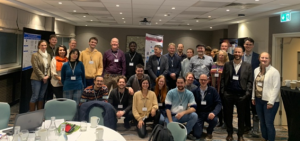
Geothermal Policy & Collaboration

GEOTHERMICA Initiative: Strengthening Collaboration in Geothermal Energy
The GEOTHERMICA project has transitioned into the GEOTHERMICA Initiative, now firmly established as a strategic platform for accelerating geothermal energy deployment across Europe. Managed by GEORG along with the Environmental and Energy Agency of Iceland, UOS, the Initiative supports its Cabinet and Members in launching co-funded calls, coordinating joint activities, and driving the initiative’s smooth and effective operation.
GEOTHERMICA’s core mission is to align national research and innovation programs through public-sector collaboration, creating a unified front that accelerates the integration of geothermal energy into the broader energy transition. The vision is clear: moving beyond isolated national efforts and fostering long-term, transnational cooperation that strengthens the geothermal sector. In 2024, GEOTHERMICA is organising several key events that bring together stakeholders from the geothermal community.
- Highlights include the GEOtherm congress in Germany https://www.geothermica.eu/article/geothermica-at-geotherm-2024
- A dedicated UTES Workshop in Offenburg, focused on Underground Thermal Energy Storage and its role in the transition to sustainable heating and cooling systems. More on UTES workshop https://www.geothermica.eu/article/utes-symposium-in-offenburg-2024
- The Summer Meeting for Members and participation in the Icelandic Geothermal Congress is designed to deepen collaboration among partner countries – https://www.geothermica.eu/article/geothermica-at-iceland-geothermal-congress-igc2024
- Knowledge-Sharing Workshop to exchange strategies and best practices- https://www.geothermica.eu/article/knowledge-sharing-workshop-2024-impressions
By coordinating these events and initiatives, GEOTHERMICA continues to shape the future of geothermal energy in Europe and beyond, ensuring it remains a central pillar of the clean energy transition.
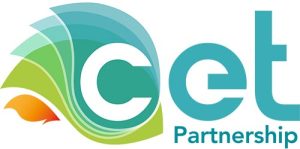
GEORG’s Continued Leadership in CETPartnership TRI4 Heating & Cooling Office
The Clean Energy Transition Partnership (CETPartnership) collaborates on research, technology development, and innovation across borders. It aims to boost the shift towards clean energy by combining funding from regional and national Research, Technological Development and Innovation (RTDI) programs. The goal is to support the EU’s aim of becoming climate-neutral by 2050. CETP aims to fund various technologies and solutions needed for this transition by pooling national resources.
GEORG stays at the forefront of this transformation, actively managing the TRI4 Heating and Cooling Office in collaboration with Orkustofnun and the GEOTHERMICA network. Over the past year, our contributions have shaped critical aspects of CETP, including developing monitoring guidelines for partnership calls and refining the impact strategy of funded projects. As leaders in the Heating and Cooling Challenge (TRI4), our team organises annual Joint Calls and spearheads strategic initiatives to advance geothermal energy solutions for heating and cooling.
In 2024, GEORG’s engagement with CETP expands through new knowledge-sharing activities:
- General Annual Board Meeting: We convene 60 stakeholders from member states to facilitate strategic discussions and decisions that shape the future of clean energy research and funding. https://georg.cluster.is/georg-cluster-hosts-general-assembly-for-cetpartnership/
- Online Webinar on Solar Thermal: Bringing together experts, innovators, and policymakers to explore advancements in solar thermal applications and their integration into the clean energy landscape. Link https://cetpartnership.eu/accelerating-clean-energy-shift-solar-thermal-workshop-cetpartnership-tri4-heating-cooling
- Knowledge-Sharing Workshop in Ittigen: This hands-on, collaborative event will foster deeper insights into heating and cooling technologies, with a special focus on geothermal energy, solar thermal solutions, and energy storage systems. Link https://www.geothermica.eu/article/knowledge-sharing-workshop-2024-impressions –
Through these initiatives, GEORG continues to push sustainable energy solutions, reinforcing CETP’s mission to accelerate Europe’s clean energy transition. With a detailed plan targeting 2030, CETP tackles key challenges of the energy transition, emphasising tangible results and measurable impacts.
Our team primarily focuses on organising annual Joint Calls under the Heating and Cooling Challenge (TRI4). We manage the office for this initiative and drive strategic developments to promote the use of geothermal energy for heating and cooling, and geothermal energy technologies. This challenge supports various technologies related to heating and cooling, including geothermal energy at all depths, solar thermal applications, systems for buildings, storage solutions, and industrial applications.
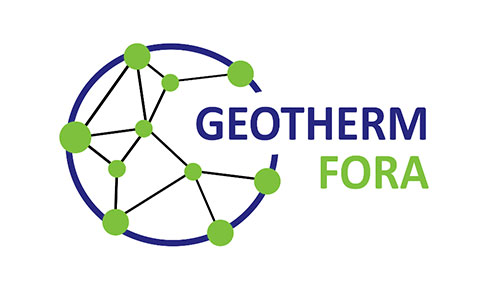
GEOTHERM-FORA: Supporting the Geothermal Implementation Working Group
The GEOTHERM FORA project works towards facilitating research and innovation (R&I) activities by supporting the work of the Geothermal Implementation Working Group (IWG) and the European Technology & Innovation Platform on Geothermal (ETIP). The project is EU funded, and is part of the HORIZON Climate, Energy and Mobility Programme. The project consortium consists of seven European entities including GEORG Geothermal Research Cluster, and is led by the European Geothermal Energy Council (EGEC). GEORG manages one of the work packages of the project which aims to strengthen, monitor, and expand the collaboration in the Geothermal IWG. GEORG also runs the secretariat for the Geothermal IWG.
Budget: € 999,546
Duration: 1 September 2022 – 31 August 2025.
The Geothermal IWG is one of the designated working groups supporting the implementation of the SET Plan, Europe’s Strategic Energy Technology Plan. The Geothermal IWG brings together SET Plan countries, the European Commission, the geothermal energy industry (EGEC & ETIP), and the research community (EERA) at a European level.
The mission of the Geothermal IWG is to coordinate research and innovation efforts and jointly support the transition to a resilient and climate-neutral Europe which utilises geothermal energy to its full potential. The Geothermal IWG identifies pressing issues for the development of Europe’s geothermal energy market, aligning industry support and R&I activities of its respective member states. The key priorities of the Geothermal IWG are heating and cooling technologies; power technologies; storage; and co-production of minerals.
Key activities in 2024 include:
- Geothermal IWG General Assembly in Brussels in February 2024.
- Geothermal IWG Summer Meeting in June 2024 (online meeting).
- Geothermal IWG Winter Meeting in Munich in November 2024.
- Participation in EU SET Plan Annual Conference & Workshop in Budapest in November 2024.
- Supported the creation of a video for the Geothermal IWG: video.wixstatic.com/video/d2a943_82c29ebd89f84b9fada3669cf6056dc4/1080p/mp4/file.mp4
- Supported the creation of a brochure for the Geothermal IWG: d2a943_85058551e93b4d4d874b88940c49c333.pdf
- Developed new presentation for the Geothermal IWG: Geothermal IWG General Assembly
- Contributed to the Annual SET Plan Progress Report: https://setis.ec.europa.eu/set-plan-progress-report-2024_en

GEORG joins the Geothermal Synergy Project
The project “Geothermal Synergy: Iceland-Poland Knowledge Exchange” (GeoSynergy) was co-financed by the Bilateral Cooperation Fund of the Financial Mechanism of the European Economic Area 2014-2021 and the Norwegian Financial Mechanism 2014-2021 under the Environment, Energy and Climate Change Programme.
Duration: 01.09.2024 – 28.02.2025
Project budget: ca. 563,000 PLN
The project is designed to deepen professional, economic, and social ties between institutions and individuals in Iceland and Poland, strongly emphasising advancing geothermal energy development. It stands as a model for international collaboration in renewable energy, showing how countries can benefit from shared knowledge, experience, and strategic partnerships.
At its core, the project facilitated the exchange of specialist knowledge on geothermal technologies and policy frameworks. Iceland’s long-standing expertise in harnessing geothermal energy provided valuable insights for Polish stakeholders, helping inform Poland’s efforts to shape effective national policies and strategies for geothermal development. The collaboration contributes to environmental and climate goals and strengthening energy security and economic resilience in both countries.
A key highlight of the initiative will be a high-level study visit to Iceland, planned to take place in 2025. This visit will enable senior Polish stakeholders to engage directly with representatives from the Ministry of Foreign Affairs, the Ministry of the Environment, Energy and Climate, and other Icelandic institutions that play a central role in geothermal policy and innovation. Through field trips and policy workshops, participants will gain first-hand insights into Iceland’s integrated geothermal ecosystem and engage in in-depth dialogue on future cooperation.
In addition to the upcoming study visit, the project includes online events to broaden stakeholder engagement and maintain continuous exchange between experts and institutions. Joint work has focused on policy development, improving geothermal frameworks, and shaping strategic cooperation pathways. A long-term objective of the initiative is to support Poland’s integration into the European GEOTHERMICA initiative, reinforcing cross-border collaboration in geothermal energy development.
Strong project management, transparent communication, and thorough reporting ensured a structured and impactful collaboration. Altogether, this initiative has built a robust foundation for ongoing partnership between Iceland and Poland and contributed to the broader European vision of accelerating the transition to sustainable, low-carbon energy systems. The project was implemented with the support of Orkustofnun (Icelandic Environment & Energy Agency) and MEERI PAS (Poland) and was funded under the EEA & Norway Grants and Innovation Norway.
More infromation and reports on https://keygeothermal.pl/en/geosynergy-2/
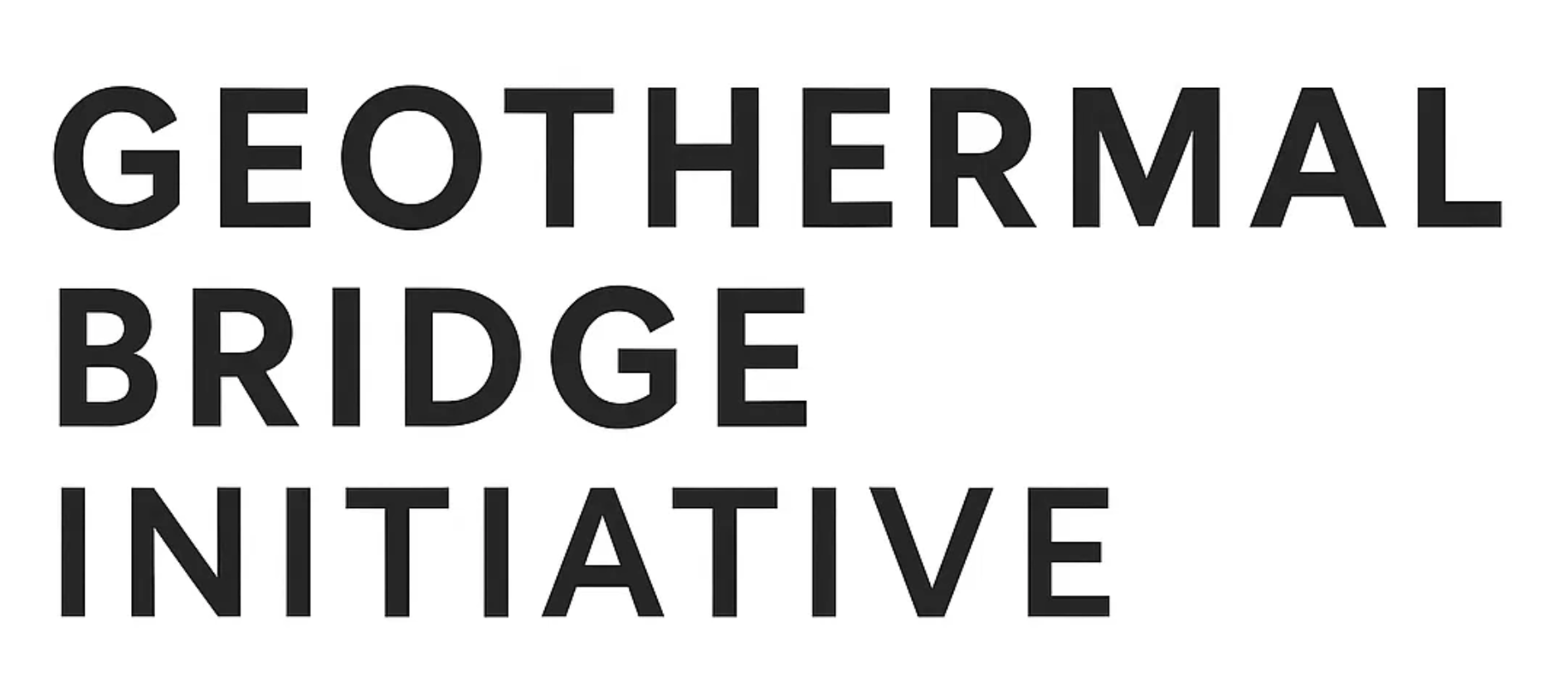
GeoThermal Bridge Initiative: Strengthening Iceland-Romania Bilateral Relationship
The Geothermal Bridge Initiative is a bilateral project between Iceland and Romania. The project is funded by EEA & Norway Grants, and is part of the Energy Programme Romania which aims to reduce carbon intensive energy and strengthen energy security. Project partners are GEORG Geothermal Research Cluster, the National Energy Authority of Iceland (Orkustofnun), and the Executive Agency for Higher Education, Research, Development, and Innovation Romania (UEFISCDI). The objectives of the project include knowledge transfer and capacity building; promoting R&D and technological advancement; and building long-term strategic cooperation between Iceland and Romania in the field of geothermal energy. Through a series of three high-impact workshops, the initiative brought together stakeholders from public authorities, academia, and industry to promote knowledge exchange and strengthen regional partnerships.
Budget: €320,080
Duration: 1 June 2024 – 31 March 2025
Key activities include:
- Project launch in Bucharest in June 2024.
- Study visit & workshop in Iceland in September 2024.
- Workshop in Bucharest in October 2024.
- Workshop in Oradea, Romania in January 2025.
- Participation in Final Event of the EEA Grants Programmes in Romania in March 2025.
The project identified and focused on several core themes, such as improving regulatory and legal frameworks; enhancing capacity building and education; facilitating public engagement and social license to operate; and exploring innovative geothermal applications such as district heating and agri-food production. Important connections were made during the project that will undoubtedly result in future bilateral and multilateral projects involving Iceland and Romania, while supporting broader European goals for clean energy transition, innovation, and regional energy resilience.
Outreach and other highlights

GEORG Cluster’s Continued Role in ETIP Geothermal Steering Committee 2024-2026
ETIP Geothermal remains committed to advancing deep geothermal technology, solidifying its role in Europe’s energy transition and beyond. Alicja Stoklosa, as a member of the Steering Committee for 2024-2026, representing the GEORG Cluster, continues to contribute expertise, fostering collaboration among key players in the geothermal sector. By bringing together leading researchers, engineers, and industry experts, GEORG strengthens innovation and drives value creation in geothermal research, engineering, and design for the benefit of society.
Building on previous achievements, ETIP Geothermal released an updated Strategic Research and Innovation Agenda (SRIA) in 2024, refining its strategic direction for research and innovation in the geothermal sector. This agenda is a guiding framework to address industry challenges and unlock new opportunities for scaling geothermal deployment.
GEORG’s engagement within the Steering Committee expanded in 2024, focusing on:
- Strengthening collaboration between European geothermal stakeholders to align funding strategies and research priorities.
- Identifying key innovations that enhance geothermal energy applications and sustainability.
- Deepening partnerships with global geothermal initiatives to accelerate knowledge exchange and deployment efforts.
Participation in ETIP Geothermal provides valuable opportunities to shape the future of geothermal energy while gaining access to cutting-edge technologies and emerging solutions. Through its leadership, GEORG continues to drive progress in making geothermal a cornerstone of Europe’s clean energy transition.
Recognition on the Global Stage: Dr. Amel Barich Named to BBC 100 Women
In recognition of her pivotal role in the development and international visibility of the Krafla Magma Testbed, Dr. Amel Barich was named one of the BBC 100 Women in March 2025. This global list celebrates inspiring and influential women from around the world, and Dr. Barich was honoured for her leadership in advancing scientific diplomacy, geothermal innovation, and cross-border collaboration. Her inclusion underscores the transformative potential of KMT and the broader contributions of women leading the clean energy transition.
Links to story on BBC International: Why scientists are drilling into magma
Strengthening collaboration at Innovation Days
GEORG took part in the Geothermal Innovation Days event organised by EGEC in November 2024, contributing to essential discussions on advancing geothermal development through international cooperation. The event served as a valuable platform to reinforce the collaboration between Iceland and Poland, particularly within the framework of the Geothermal Synergy projects and the GEOTHERMICA initiative.
As part of the GEORG team, Alicja Stokłosa and Ester Halldórsdóttir represented Iceland in meetings with Polish partners from MEERI PAS, including Dr. Beata Kępińska and Dr. Aleksandra Kasztelewicz. Discussions focused on aligning geothermal policy efforts and exploring new opportunities for cross-border collaboration through two projects — Geothermal Synergy and the Geothermal Bridge Initiative — both supported by the EEA and Norway Grants.
Championing Social Acceptance and Societal Engagement
Building on her established role as a thought leader in geothermal communication and social acceptance, Dr. Amel Barich continued in 2024 to represent GEORG through multiple high-impact contributions focused on societal engagement:
- Book Chapter Publication: Co-authored a chapter titled “Prioritize inclusive, early and continuous societal engagement to maximise the benefits of geothermal technologies” in the Springer open-access volume Strengthening European Energy Policy. The chapter draws from COMPASS, CROWDTHERMAL, and her own doctoral research on the Social License to Operate.
- Future Storms Webinar: Featured in the Future Storms webinar series hosted by KIRT x THOMSEN, discussing “The Social Potential of Geothermal Energy” and exploring how design thinking, visual communication, and stakeholder inclusion enhance public acceptance and project success.
- EAGE Panel on Social Acceptance: Participated in the EAGE 2024 conference on a panel about social acceptance of geothermal energy, presenting insights from the COMPASS project and highlighting real-world examples of community engagement.
- New Role in ETIP Social Sciences and Humanities (SSH) Working Group: In 2024, Dr. Barich joined the SSH Working Group of the European Technology & Innovation Platform on Renewable Heating and Cooling (ETIP RHC). Her role supports cross-sector collaboration to embed social science expertise into clean energy deployment, further reinforcing GEORG’s commitment to inclusive, people-centred innovation.













